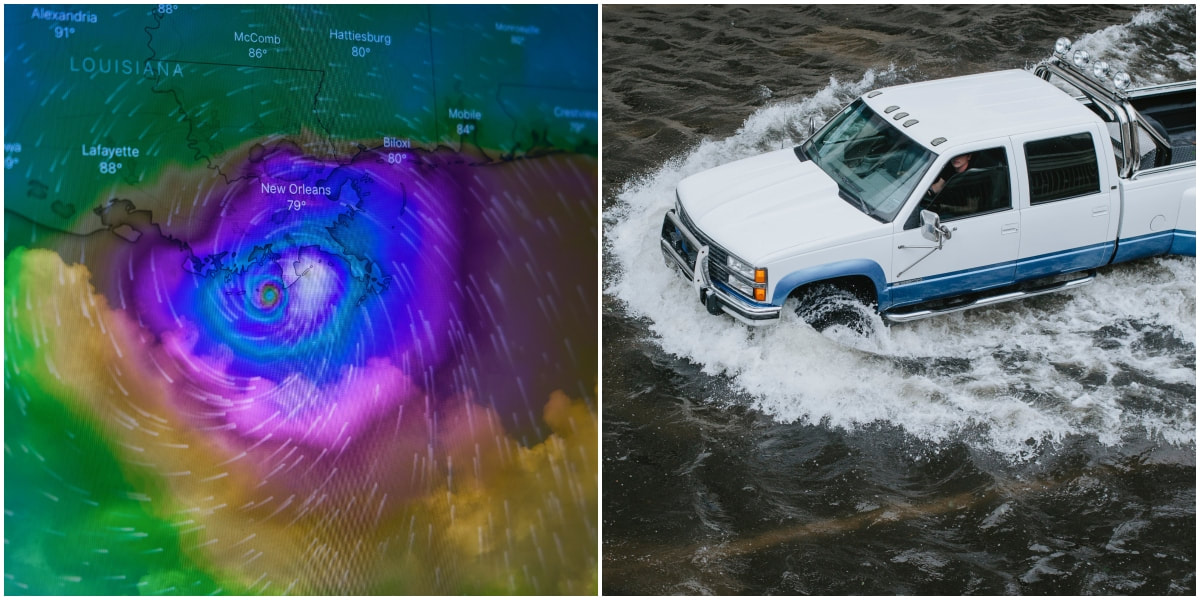|
This article contains affiliate links, click here for more details.
Hurricane season is in full swing for Florida and with that comes heavy rain, gusty winds, high humidity and of course--flooding, however, that potential doesn't seem to stop millions of vacationers from visiting during this time. Despite that June-November is Florida's hurricane season, for many--especially those with children--it's the only time feasible to visit. Thankfully, if you find yourself booking a rental in the Sunshine State during hurricane season, there are some ways to mitigate additional worry and mishaps even through the most chaotic of seasons. Here are 5 tips to enjoying vacation in Florida during hurricane season.
1. Keep your eye on the radar
With the existence of resources like news channels and the National Hurricane Center, keeping an eye on the formation of cyclones and their trajectory all over the world is made very simple. The National Hurricane Center's website has comprehendible radars showing past, current and 2-day graphical tropical weather outlooks. Keeping this invaluable resource in your webpage bookmarks (and checking it often) should be a critical part of your summer travels--and that goes for coastal areas beyond Florida too.
2. Get travel insurance
While radars are great for preparing you for the upcoming weather a few days ahead, if your vacation is booked weeks to months in advance, travel insurance should be considered a must. It's understandable that paying more money for something that's a "what-if" when you're already shelling out thousands on a vacation may seem like a luxury, in reality it really should be treated as a necessity during hurricane season because tropical storm formation is so unpredictable.
Hurricanes and tropical storms can form in only a few short days--quickly reaching wind speeds of over 150mph--and with such little notice, it's understandably difficult to plan for such disaster months, perhaps even years ahead. This is where travel insurance comes in. A good insurance plan may allow you to cancel your trip within as little notice as 24-hours ahead of your departure and offer a full refund! 3. Stay farther inland
It's no secret that the coastal regions of Florida usually take the brunt of the damage when it comes to hurricanes and tropical storms. Additionally, because Florida's coastal regions are so close to sea-level (or sometimes even below), flooding in these areas can quickly become disastrous. You absolutely do not want to be caught in a flood zone during a hurricane.
Choose to vacation farther inland and in the higher regions of the state can offer at least a little more of a buffer from some of the worst aspects of tropical storms. Though you may be slightly farther from the coast, you can still make it a point to drive to the beaches on good-weather days. 4. Don't go chasing storms
Extreme weather is interesting, there's no doubt about it, but it should be respected for what it is: dangerous. Just as you probably wouldn't go handling venomous snakes or swimming with a pool of hungry alligators, you shouldn't try to put yourself in harms way by "chasing" a storm, let alone something as powerful as a hurricane. Tropical storms have a high potential to cause tornados, lightning, storm surges, floods, strong currents, power outages and a host of other potentially deadly phenomena. So if you or a friend suggests it would be "cool" to go out and experience such weather, just remember that that idea is exactly how many people have lost their lives.
5. Hope for the best--but prepare for the worst
Last--but certainly not least--you should be prepared for the worst. Always have a hurricane plan in mind and be ready to leave at a moments notice. Educate yourself on the best practices for hurricane preparedness through trusted resources like the National Hurricane Center.
0 Comments
Your comment will be posted after it is approved.
Leave a Reply. |
CATEGORIES |
|
|
Vertical Divider
|
Can't get enough?Uncover more of Florida through our channels below!
|
© COPYRIGHT 2015. ALL RIGHTS RESERVED.


 RSS Feed
RSS Feed